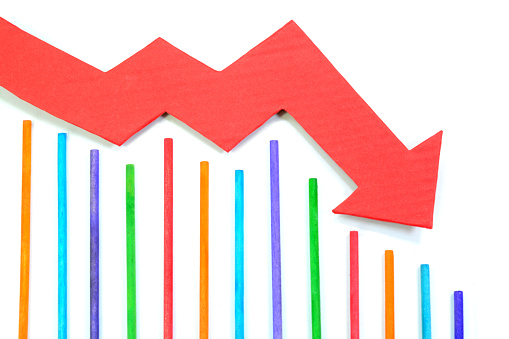In light of recent events, the Federal Reserve announced that they would drop interest rates to zero.
While this number may sound appealing initially, it can actually create a ripple effect on many different markets, including the mortgage sector.
What do these extremely low-interest rates mean for you, and how will they affect your life? Read on to find out more about the Fed’s latest strategy.
What Did the Federal Reserve Do, and Why?
Current Fed Chair Jerome Powell has dropped interest rates to zero to mitigate financial distress during the coronavirus pandemic crisis. In addition, the Federal Reserve has announced they’re buying hundreds of billions of dollars in government and mortgage-related bonds. This strategy was performed to help protect our nation’s economy during the coronavirus crisis.
These new moves are the most dramatic performed by the U.S. central bank since the infamous financial crisis of 2008. The goal? To keep financial markets on stable footing and to help ensure that borrowing costs for consumers and investors are as low as possible.
Another tactic the Federal Reserve implemented in a program of bond purchases called “quantitative easing,” where the central bank buys hundreds of billions of dollars in treasury bonds and mortgage-backed securities. The idea is that these purchases will push rates down even further, allowing the markets to carry on as normal without interruption and provide a cushion for the economy.
Banks around the nation are now able to receive generous loans from the Fed in order to offer these loans to families and businesses that are struggling. These slashed interest rates and other economic policy changes have been made to help offer some economic hardship relief during this turbulent time.
The U.S. economy is expected to undergo a serious wide-ranging recession within the coming months, which will likely result in negative growth in the second quarter. With intervention by the Federal Reserve, the central bank hopes to mitigate some of the possible economic damage. President Donald Trump had been pushing the Fed to take more action for quite some time, and he announced that he’s pleased with the Federal Reserve’s recent decision.
What Will This Do to Mortgage Rates?
At first glance, it might appear that dropping interest rates to zero means home buyers or refinancers could save quite a significant amount of money. However, the recent influx of refinances when rates were low has forced some banks to inflate their rates in order to stave off the demand.
With massive layoffs underway, many potential home buyers are now waiting to see what happens with the U.S. economy. Skittish buyers are not likely to make an offer during extremely turbulent economic times.
When the Fed cuts interest rates, it doesn’t necessarily directly translate to the mortgage market. A variety of factors come into play including current economic activity, housing demand, and buyer confidence.
Mortgage rates recently skyrocketed to their highest levels in months, mainly due to overall market volatility. However, it’s forecasted that these rates will slowly decline within the next few weeks pending any other economic disasters. If you’re interested in buying or refinancing a home, you may want to wait until there are further mortgage interest rate cuts.
What Will This Do to Other Loan Rates?
In theory, when interest rates from the United States Federal Reserve are cut, consumers stand to benefit. You may find that you may see a credit card rate cut, for example.
It might also be less expensive to borrow money in other ways, such as a personal loan or even a car loan. Pay close attention to all factors including the stock market and the current economic outlook to help you gauge what a good rate is.
For savers, you may see your savings account interest rate go down. This means your accrued interest will be lower every month, but it’s still a good idea to keep your money in savings until things calm down. If you have a CD with a locked rate, you should be fine, but if your CD is about to roll over, it may receive a lower rate when that occurs.
Those with a 401(k) or those invested in the stock market may see major losses in the coming days and weeks. If you don’t need to cash out withdraw, it’s best to wait it out until rates and markets rise again.
How Can You Take Advantage of the New Rates?
While a zero percent interest rate can be scary in some aspects, it can also be financially beneficial to the savvy consumer or investor. Look for stocks that are being sold at a low price and buy up what you can, as most should bounce back when the economy recovers.
For homeowners, mortgage and refinance rates should eventually decrease if you’re willing and able to wait it out. Pay attention to the mortgage markets and lock in your rate with a lender as soon as possible when you discover rates are low.
Lower credit card rates are always good but expect those rates to lower much more slowly than other accounts. Don’t overspend and use your credit card, but instead use the new, lower rates to pay down debt faster whenever possible.
The Fed’s Rates and You
As a consumer, the Federal Reserve’s new near-zero interest rates can have a significant impact on how you spend and borrow money. Mortgage rates will fluctuate during this time, while the stock market is likely to decline until things improve.
For further information on rates for your personal situation, use our mortgage tools to discover the best course of action for you.



